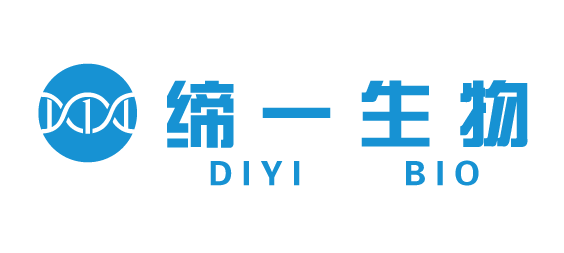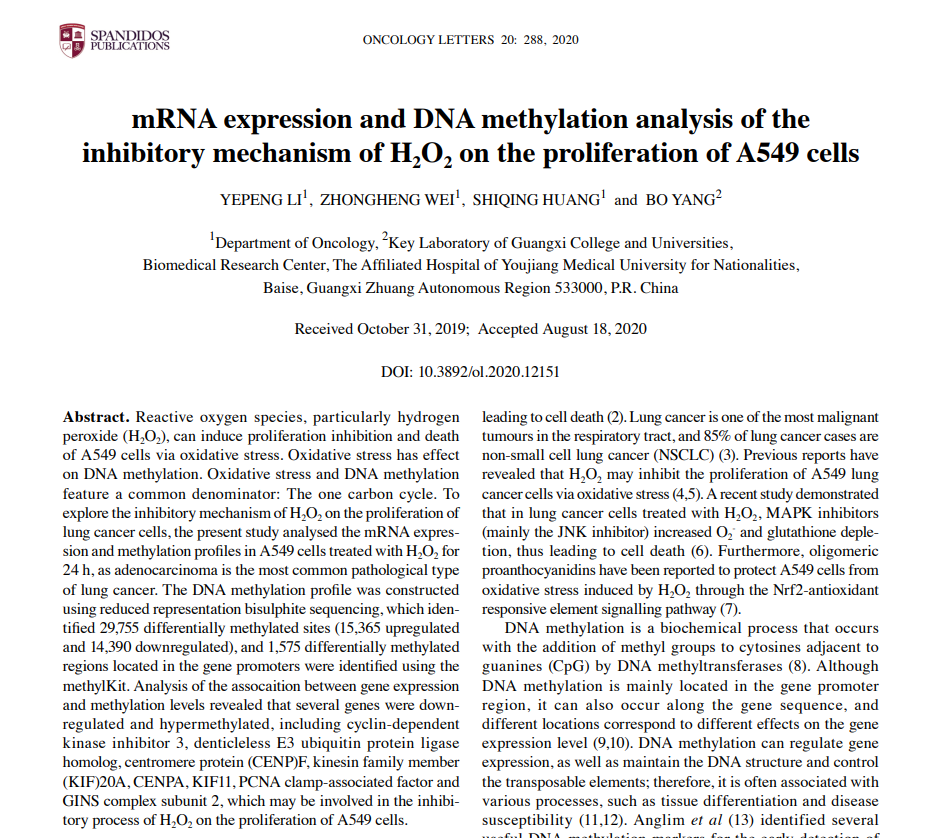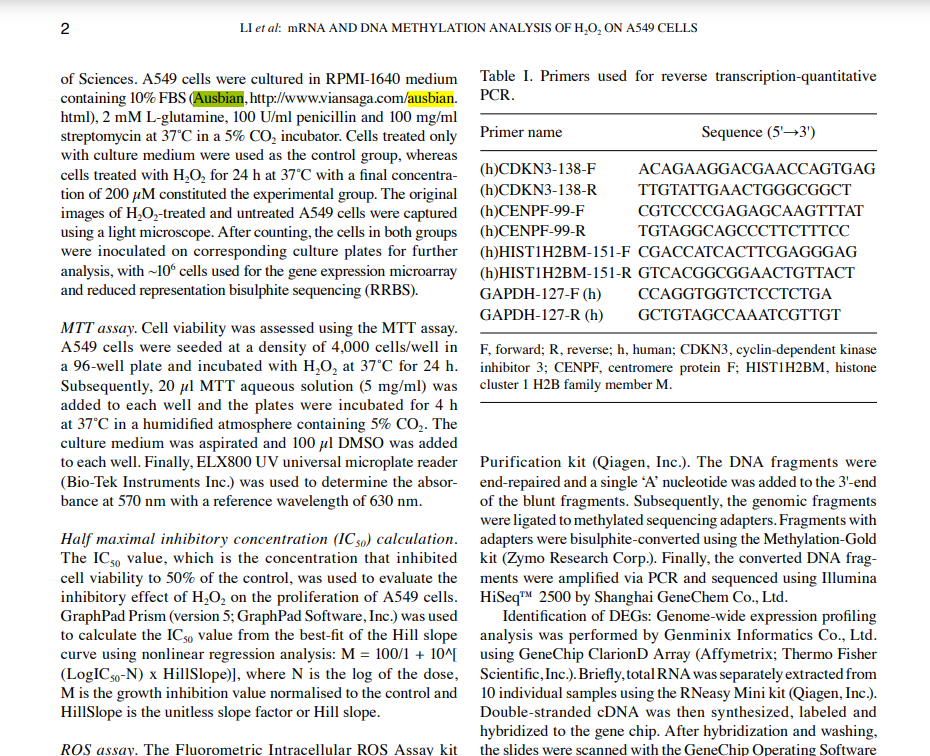H2O2對(duì)A549細(xì)胞增殖抑制機(jī)制的mRNA表達(dá)及DNA甲基化分析 二維碼
發(fā)表時(shí)間:2024-09-02 16:46 2019年10月,右江民族醫(yī)學(xué)院附屬醫(yī)院腫瘤科廣西高等學(xué)校重點(diǎn)實(shí)驗(yàn)室生物醫(yī)學(xué)研究中心(Department of Oncology, Key Laboratory of Guangxi College and Universities, Biomedical Research Center, The Affiliated Hospital of Youjiang Medical University for Nationalities, Baise, Guangxi Zhuang Autonomous Region 533000, P.R. China) YEPENG LI老師研究團(tuán)隊(duì)在《Oncology Letters》上發(fā)表論文: “mRNA expression and DNA methylation analysis of the inhibitory mechanism of H2O2 on the proliferation of A549 cells” “H2O2對(duì)A549細(xì)胞增殖抑制機(jī)制的mRNA表達(dá)及DNA甲基化分析” Abstract: Reactive oxygen species, particularly hydrogen peroxide (H2O2), can induce proliferation inhibition and death of A549 cells via oxidative stress. Oxidative stress has effect on DNA methylation. Oxidative stress and DNA methylation feature a common denominator: The one carbon cycle. To explore the inhibitory mechanism of H2O2 on the proliferation of lung cancer cells, the present study analysed the mRNA expression and methylation profiles in A549 cells treated with H2O2 for 24 h, as adenocarcinoma is the most common pathological type of lung cancer. The DNA methylation profile was constructed using reduced representation bisulphite sequencing, which identified 29,755 differentially methylated sites (15,365 upregulated and 14,390 downregulated), and 1,575 differentially methylated regions located in the gene promoters were identified using the methylKit. Analysis of the assocaition between gene expression and methylation levels revealed that several genes were downregulated and hypermethylated, including cyclin-dependent kinase inhibitor 3, denticleless E3 ubiquitin protein ligase homolog, centromere protein (CENP)F, kinesin family member (KIF)20A, CENPA, KIF11, PCNA clamp-associated factor and GINS complex subunit 2, which may be involved in the inhibitory process of H2O2 on the proliferation of A549 cells. 摘要: 活性氧,特別是過氧化氫(H2O2)可通過氧化應(yīng)激誘導(dǎo)A549細(xì)胞增殖抑制和死亡。氧化應(yīng)激對(duì)DNA甲基化有影響。氧化應(yīng)激和DNA甲基化有一個(gè)共同點(diǎn):一碳循環(huán)。為了探討H2O2對(duì)肺癌細(xì)胞增殖的抑制機(jī)制,本研究分析了H2O2處理A549細(xì)胞24 h的mRNA表達(dá)和甲基化譜,因?yàn)橄侔┦欠伟┳畛R姷牟±眍愋汀NA甲基化譜使用減少代表性亞硫酸鹽測序構(gòu)建,鑒定了29,755個(gè)差異甲基化位點(diǎn)(15,365個(gè)上調(diào),14,390個(gè)下調(diào)),并使用methylKit鑒定了位于基因啟動(dòng)子中的1,575個(gè)差異甲基化區(qū)域。基因表達(dá)與甲基化水平的相關(guān)性分析顯示,細(xì)胞周期蛋白依賴性激酶抑制劑3、無牙E3泛素蛋白連接酶同源物、著絲粒蛋白(CENP)F、激酶家族成員(KIF)20A、CENPA、KIF11、PCNA鉗相關(guān)因子和GINS復(fù)合物亞基2等基因下調(diào)和高甲基化,可能參與H2O2對(duì)A549細(xì)胞增殖的抑制過程。 該論文中,A549細(xì)胞的體外培養(yǎng)是使用Ausbian特級(jí)胎牛血清完成的。欲了解或購買Ausbian特級(jí)胎牛血清可以聯(lián)系北京締一生物400-166-8600.
|
|





